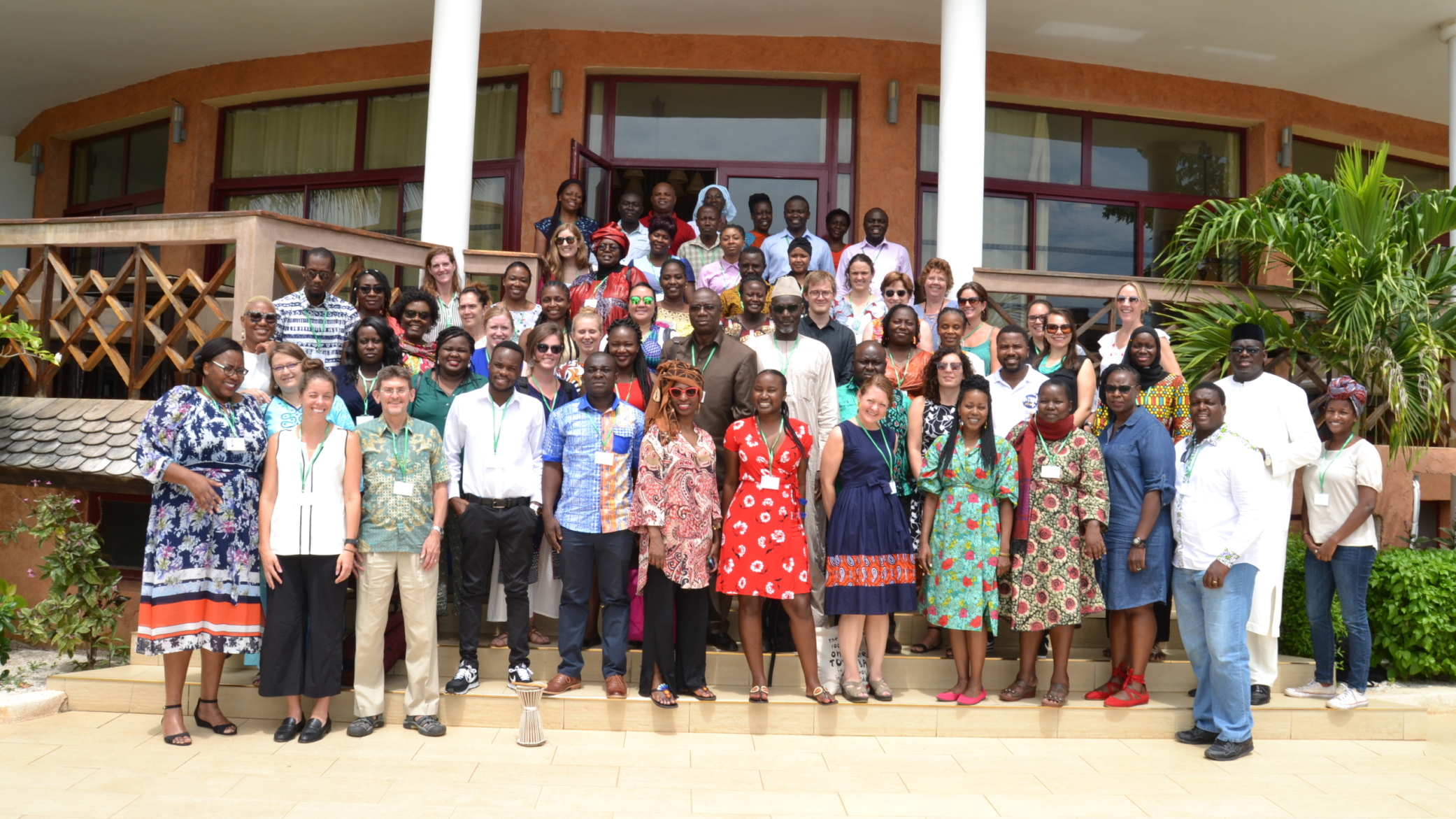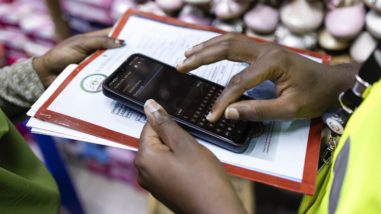Translating equitable principles into transformative funding practices
Lessons about intermediary grantmaking in the sexual and reproductive health and rights field

Cliquez ici pour lire en français.
In 2016, the Hewlett Foundation launched a sub-strategy to support a vibrant civil society sector in Africa that could capably and positively influence the family planning and reproductive health policies and funding decisions of national governments and international donors. The strategy sought to address several constraints in prevailing sexual and reproductive health and rights (SRHR) advocacy capacity-building models. These challenges included an emphasis on short-term and project-based funding, narrow advocacy wins, and poorly matched technical assistance. The constraints were identified as by-products of power and resource imbalances between funders and civil society organizations (CSOs) in the Global South.
Investments under the strategy were made primarily through an intermediary grantmaking model in which international non-government organizations (INGOs) re-granted and provided capacity support to their CSO partners in East and West Africa. Based on this intermediary model, a key element of the strategy was centering a principle-based approach to partnerships among the foundation, INGOs, and CSOs. The principles were:
- Support local policy advocacy priorities.
- Provide hands-on and sustained technical assistance tailored to each organization.
- Support longer-term advocacy partnerships.
- Encourage mutual accountability among all actors.
- Measure progress, share learning, and adapt.
Alongside the sub-strategy, we commissioned an accompanying developmental evaluation, led by the Aspen Institute’s Aspen Planning and Evaluation Program (APEP), to assess if this principle-based approach to strengthening the SRHR CSO sector in Africa was effective in achieving our short-term outcomes. Equally important was to more deeply understand complex issues at the core of the funding model, namely assumptions about capacity building in advocacy partnerships and the practice of mutual accountability and power shifting in grantmaking. This month APEP has published the final report from this five-year evaluation, which includes practical briefs for funders and intermediary re-granters on addressing power shifting and equitable partnerships. To inform the evaluation, APEP conducted a context review of trends in the broader philanthropic and international development field in which the strategy is situated, and produced accompanying discussion guides.
Following are key lessons from the foundation’s deep engagement in developing, funding, influencing, and evaluating this strategy with partners; how these lessons inform our Global Reproductive Equity strategy; and our thinking about fostering equitable partnerships in our grantmaking across the Gender Equity and Governance Program.
Prioritize transparent communication
I joined the foundation a year into developing and funding the strategy. As part of my onboarding, I traveled across Africa to meet with CSOs supported through our intermediary grantmaking to learn more about their work. I quickly discovered that only a few CSOs knew anything about the sub-strategy and the foundation’s intention to shift decision-making and funding to them. This communication gap was significant as the evaluation intended to assess how the principle-based grantmaking approach contributed to strengthening CSOs’ capacity to effectively advocate for SRHR.
To increase transparency, we hosted a series of webinars in English and French to share the purpose of the strategy and its intended outcomes with intermediary grantees and CSO sub-grantees while allowing space for sub-grantees to interact directly with the foundation. We also resourced our INGO grantee partners to discuss their role as intermediaries in this funding ecosystem and how they were working to foster more equitable partnerships and mutual accountability with African CSOs. The role of INGOs in the development sector has been a hot topic in recent years. The foundation continues to support INGOs efforts to evolve their partnership practices and we have been thinking deeply about these debates.
Surface power inequities
Through the evaluation, we learned that the principle related to encouraging mutual accountability between the foundation, INGO intermediary grantees, and African CSOs was very confusing. Additionally, it was difficult to assess its practical application. This learning led to rethinking our short-term outcomes and explicitly stating that the strategy aimed to shift decision-making power and funding to African CSOs. We had to directly name “power shifting” as an outcome and tangible form of mutual accountability.
With this change in framing, the APEP team deepened its exploration of how power dynamics manifest in funding and decision-making in intermediary grantmaking relationships. Over time the findings showed that most CSOs had greater agency in determining SRHR advocacy priorities and strategies, yet limited power over funding allocations often due to a lack of budget transparency and equity. The APEP team shared these findings on funding and power with advocacy actors across the African region through a webinar last year. The final evaluation report offers practical recommendations for funders, intermediaries, and sub-grantees to facilitate power shifting and capacity strengthening.
Create inclusive learning spaces
From the beginning, the foundation sought to convene grantee partners as an integral part of strategy implementation and evaluation. In 2017, the convening was intended for grantee partners to establish a shared set of outcome indicators with APEP. By the midpoint of the evaluation, we learned that convenings could serve as an essential space for shared learning between African CSOs, INGO intermediaries, and the foundation. In 2018, we hosted a convening that included all actors and provided interpretation services to allow for open conversations that initially surfaced the issue of budget transparency as a reflection of equitable partnerships. In 2019, our Niyel partners facilitated a convening to dive deeper into power dynamics among funders, INGOs, and African CSOs, and the impact of power inequities on capacity strengthening.
We learned that these types of learning spaces, where all participants can speak candidly about partnership practices and the principles upon which they are formed are few and far between. Although the conversations were often challenging and uncomfortable, most African CSOs and several INGOs welcomed the opportunity to participate in these open discussions. Ultimately, the convenings served as a space to build trust and a shared understanding of the strategy’s principles, and work inclusively to identify aligned funding and partnership practices.
Embrace complexity!
In partnership with APEP and our evaluation officer, Amy Arbreton, I have continued to interrogate how we think about and assess progress under the strategy. Our evaluation questions have evolved through this inquiry process, and the answers to these questions have become more nuanced. Over time, we have challenged and moved beyond simplistic assumptions about capacity-building partnerships as a one-way approach from INGOs to CSOs and a perpetual process without a defined endpoint. Similarly, we have learned that although naming power shifting as a strategic outcome was essential, understanding the multiple dimensions and layers of how power manifests in our funding partnerships is a continuous process of uncovering systemic inequities in our funding practices. Though daunting, we have embraced these complexities and the changes they require. Across the foundation, there are complementary initiatives in our emerging work in feminist philanthropy and through our Western Conservation strategy.
Translate principles into funding practices
Throughout the past five years, we have been committed to ongoing course correction as we listened and learned from our grantee and sub-grantee partners and the APEP team about our principle-based intermediary grantmaking approach. In response to these lessons learned, we have established a set of funding practices (who and how we fund) that have been integrated into our new Global Reproductive Equity strategy.
- In 2019, we revised our grantee reporting template to solicit more relevant information to assess the extent to which these re-granting partnerships were equitable and serving the expressed needs of African CSOs.
- To foster inclusive decision-making and budget transparency, in 2020, we began inviting sub-grantee partners to participate in proposal development and reporting conversations with the foundation. Recently, we have established clear expectations about re-granting terms (multi-year, core support) and budget equity (the proportion of funding allocated to re-grants). We are also working to provide interpretation services regularly to address language equity.
- We have clarified that the foundation is committed to supporting institutional strengthening for African CSOs as essential for sustainable change in achieving SRHR across the region.
- As part of evaluation and learning under the new GRE strategy, we seek to establish clear accountability mechanisms to assess our equity intentions. We will develop these mechanisms in partnership with those closest to the issues. Aligned with the principle-based approach, we will hold ourselves to account by asking, “What are indicators of progress for funders in advancing equitable partnerships?”
In response to the field’s call for greater funder accountability, we endorsed the Aspen Institute New Voices Fellows’ Call to Action for SRHR Funding Best Practices. The guidance offered by these SRHR leaders is closely-aligned with our guiding principles and the values underlying our evolving grantmaking approaches. We hope that other funders sign on to the call to action. Under the GRE strategy, we plan to communicate our evolved grantmaking model more effectively as we continue to learn from and seek to positively influence our private and bilateral peer funders.
Integrating equity into funding partnerships is hard work, but it’s essential to the sustained change in SRHR policy and practice that the field envisions. And it is delicate work. As a funder, I seek to foster healthy partnerships that are strong enough to allow for candid conversations and funding practices that reflect principles we all value. By bringing power inequities to light and seeking to address them, we see positive changes in our funding partnerships. I’m not just referring to more and better funding and greater access to decision-making for those closest to the issues. I’m talking about more transparent discussions about root causes and the need to address systemic racism and neocolonial ideas that underlie inequitable partnerships and practices.
These key lessons and shifts in funding practices were only possible due to the willingness and trust of our current and previous grantee and sub-grantee partners to openly and courageously share their insights and experiences with the foundation and APEP team over the past five years. For this, we are very grateful. We hope the evaluation offers valuable information to civil society actors who seek to build more equitable partnerships and secure the resources necessary to sustain important work towards social justice. We extend special appreciation to the APEP team for walking this learning journey with us. The developmental evaluation has informed our funding practices throughout the Gender Equity and Governance Program. It serves as an important contribution to funders and other stakeholders engaging in intermediary grantmaking, power-shifting, and localization initiatives.


